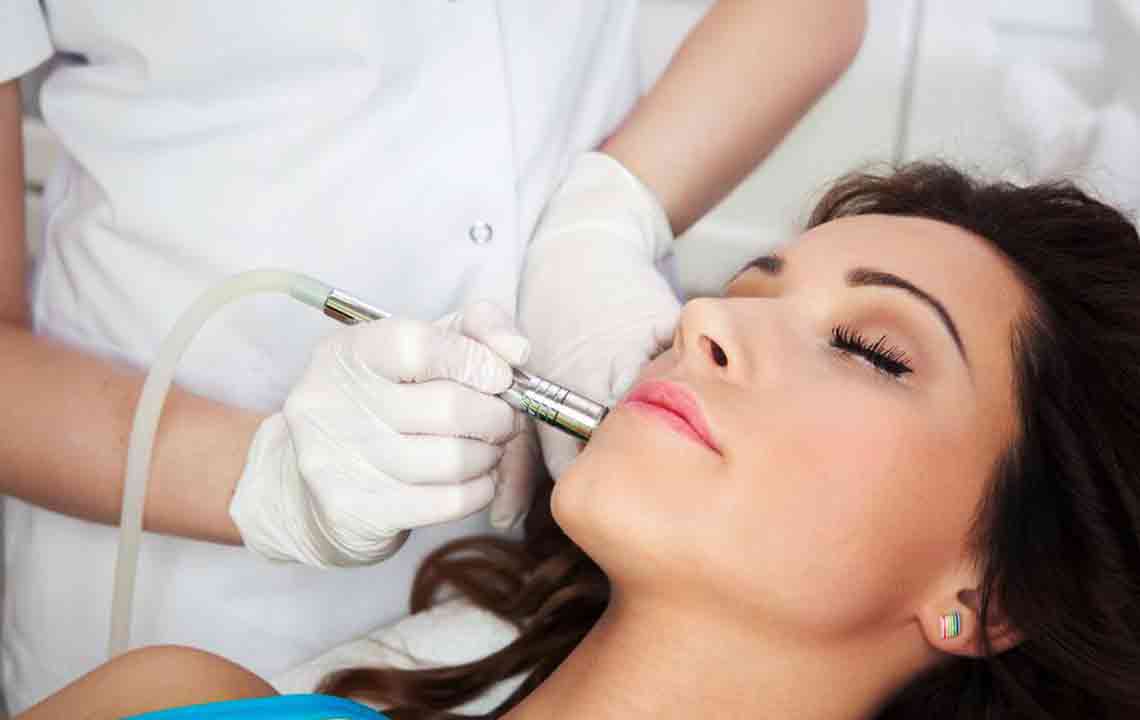Here’s what you can do for your age spots
Age spots are the consequences of an excessive production of a skin pigment called melanin. But this is not always the sole cause of age spots, and doctors are not sure regarding what leads to the development of these spots. Exposure to the harmful UV rays and skin aging can be regarded as possible causes of age spots. Even though you can develop age spots at almost anywhere in the body, certain areas are more vulnerable that include forearms, the back of your hands, upper back, shoulders, and your face.

What are the signs of age spots?
People of any age or race can develop age spots, but some people are more likely to develop these blemishes such as having a history of frequent exposure to the sun, being older than 40 years and having a history of frequent tanning bed usage. These age spots can range from light brown to black in color or have a similar texture as the complexion of the rest of the skin. These are typically painless and normally occur on the sun-exposed areas.
How can these age spots be diagnosed?
A skin expert can diagnose age spots by examining the skin. In case your doctor finds out that your dark blemishes are not age spots, then he may perform a biopsy to know about the nature of the spots. In this process, a small piece of the skin is removed for checking whether it’s cancerous or has any other abnormalities.
What constitutes the age spots treatment?
Age spots are not regarded dangerous, and they don’t lead to any sort of health complications. Most of the times treatment is not needed at all, but some people want to remove the age spots since it changes the way a person looks. Here are some of the most common age spots treatment that can help you get rid of these unwanted blemishes:
Prescription medications
Your doctor may prescribe some drugs and creams after examining your skin thoroughly. In most cases, the bleaching creams can fade these spots through a gradual process. These creams are rich in hydroquinone and sometimes, retinoids. But the bleaching creams take a few months to fade the age spots. And it is important to note here that you must wear sunscreen when you are under this treatment. This is because bleaching and tretinoin creams can make the skin more sensitive to the harmful UV rays. This treatment may leave your skin red, itchy and dry.
Medical procedures
There are numerous medical procedures which can help in treating the age spots. Each of these medical processes entails hordes of side effects as well as complications. You should, therefore, consult an expert who can recommend the most suitable treatment process for you. The age spots treatment under this category include:
• Laser and Intense pulsed light or IPL therapy: Laser and Intensely pulsed light therapy can destroy the cells responsible for producing melanin without affecting the surface of the skin. Typically, these two age spots treatments require two to three sessions for the desired reduction of the blemishes. Once the treatment is over, the age spots start fading on their own within a few months. The laser treatment comes with a few side effects, and it may lead to a subtle discoloration of the skin. Therefore, sun protection is very crucial once you undergo laser or Intensely pulsed light therapy.
• Cryotherapy or freezing: This process involves the application of liquid nitrogen with the help of a cotton-tipped swab. It may also include other freezing agents for the destruction of the excess pigment. While the area heals, the skin tends to be lighter. This age spots treatment is typically used on a single age spot as well as a group of spots together. It may irritate the skin for a couple of minutes and also involves the risk of discoloration or permanent scarring.
• Chemical peel: This age spots treatment involves the application of an acid which burns the external layer of the skin. With the peeling of the skin, new skin starts forming to take its shape. But it may take few sessions before you notice desired results. It is extremely crucial to have sun protection. You may have redness on the skin for some time, and there is also the risk of permanent discoloration of the skin.
Microdermabrasion and dermabrasion are treatments to be considered. It is important to note since age spots treatment falls under the cosmetic category. Hence, the insurance most likely would not cover the expense. Since many of these procedures involve side effects, you should carefully weigh your decisions and discuss your options carefully with a skin expert. Also, you must ensure that your dermatologist is specially trained and experienced in performing the technique that you are willing to opt for.